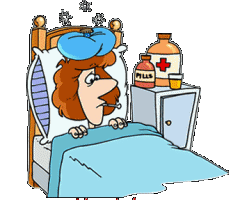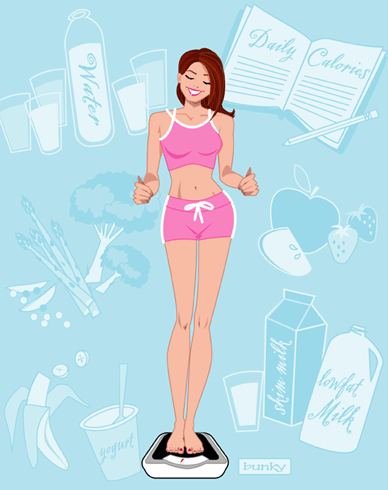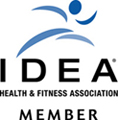I'm my mother's advocate. At this season of her life, I have become her avenue to survival...in the health field. Life and death have often weighed in the balance.
If you haven't experienced this role, the likelihood is high that you one day will. So listen up. And if for no other reason, make yourself aware in case YOU find yourself alone. You WILL NEED to become your own advocate. For what? To protect your life.
In this case, we are going to discuss patient advocacy. You see, we are no longer living in a day where the hospital is a safe place to recover from an illness. It's quite the opposite.
Welcome to the 21st century.
Just My Opinion?
Hygiene is top on the list. You would be incensed if I cited all the germ infested incidents I encountered. Here are just a few:
- A nurse dropped her pen in Mom's water glass. She simply pulled it out and gave the water back to Mom to drink.
- Repeatedly, I saw nurses and techs come in and without washing their hands, then begin to "handle" Mom's utensils, etc. with their "germy" hands.
- Now, get this: There were those who dutifully came in washed their hands. BUT, then they touched every possible crevice of the room, and followed up by putting their hands all over my mother.
- I saw many a doc come in, wash their hands in the germ plastered bathroom, shut the door by grabbing the doorknob, then proceed to my mother's bedside to check her out from head to toe. Hello, doorknobs are germ-grabbers.
- I observed nurses and techs cleaning her bedpans, then proceed back in the room without washing their hands, and touch wherever and whomever they pleased. For certain Mom.
- I saw them leave the bed pan, uncleaned in the bottom of the shower floor. As if no one was going to stumble on it or see it? They were hoping?
- I witnessed them reusing their gloves. That is, they would put them on, take them off to perform some task, then put the same gloves back on and carry on with their work. Never mind that "where" they lay the gloves was certainly not germ filtered.
- Too, I watched as they took off their gloves, handling the outside of them when throwing them away, and then begin to touch what my mother would be touching before leaving the room. Her bed-rails, her sheets, her tray, you name it.
- Once when Mom was so sick a nurse came in and was going to wet a washcloth for her to use to clean her up. You won't guess how she wet the cloth. She took it to the sink, turned on the water, lay the cloth DOWN in the sink and let the water run on it. Then came back to it and picked it up and proceeded to use it on my mother's private parts. You want to tell me that isn't sick? Like that sink wasn't loaded with every kind of infectious ill there is?
Is Any Of This Preventable?
There wasn't anything that I saw that wasn't preventable. It's going to take the responsible parties to be willing to be pro-active. While health professionals need desperately to heighten their methods of cleanliness, we need to insist that they do. Something as simple as keeping their hands and the patient's room truly clean, would change these deaths rates drastically.
And think of what was going on when I wasn't there. I don't even want to imagine. Did I need to set up a camera while gone as a means of prevention/protection? Maybe this might be a good policy!
Remember I'm NOT just talking about the aides, I'm talking about supposed qualified RN's and doctors.
What Did I Do?
Did I remain silent in these situations? What do you think? NOT with a "double" NOT!!! More about this in my next post.
Stats Staring Us In The Face Of Death:
Read the following quotes from RID (rid infection deaths):
On Hospitals:
- Many people equate a hospital environment with being sterile and germ free. Nothing could be further from the truth. Hospital infections are the 4th leading cause of death in the United States. Numerous people have entered the hospital for what should have been routine surgery, only to die from hospital acquired infections.
The Stats:
- Betsy McCaughey (former lieutenant governor of New York) and founder of the Committee To Reduce Infection Deaths, says that hospital acquired infections kill as many people in the U. S. annually, as AIDS, breast cancer, and auto accidents combined.
The Hospitals And Their Efforts:
- Very few states require hospitals to report their infection rates, or to inform an unsuspecting public. The problem is veiled in secrecy, with many hospitals not willing to spend the money or time required to correct the situation. Additional education and instruction would greatly lower the incidence of infection.
What About The Hospital Staff?
- Many doctors and nurses are not using proper hygiene.
- Hand-washing is essential between patients, in order to prevent germs from being carried from one person to another, but many health care practitioners do not like to wash their hands this frequently, and cause patients to be at risk.
- Even doctors' ties, stethoscopes, and blood pressure cuffs can transmit dangerous germs within a hospital.
What's A Patient To Do?
- A patient has little recourse in some of these situations, but do not be afraid to ask a nurse or doctor to wash their hands before they touch you.
- You may be immediately labeled as "bossy", but better bossy than dead.
- (Statistics tell us that over half of the doctors who come to your hospital room have NOT washed their hands.)
- RID has 15 suggestions for you to consider for your hospital stay. Please ck them out at http://www.hospitalinfection.org/protectyourself.shtml
NOTE: http://www.hospitalinfection.org/
Revised: Oct. 8th
More next time on what some of these infections are and how we might prevent them. Too, we will discuss more causes of death while on your supposed road to recovery in the hospital.
Copyright © 2008 by Pilates Worx 4 Life. All rights reserved. Check out website: www.pilatesworx4life.com






 Enjoy
Enjoy











